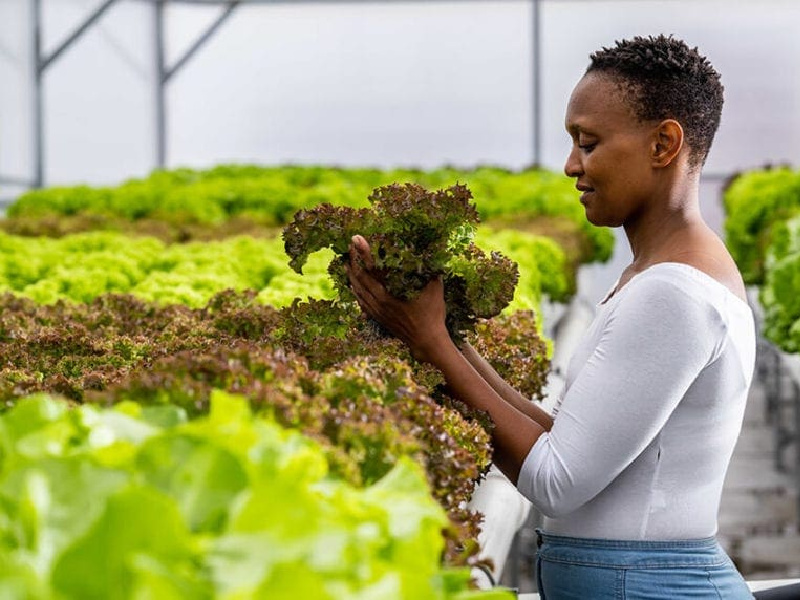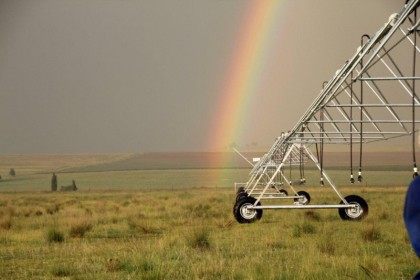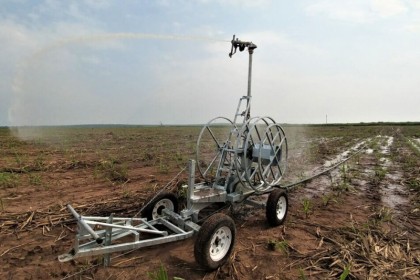
Hydroponic Farming: Pioneering Agriculture in the Fourth Industrial Revolution
For millennia, the process of farming has remained unchanged, making it seem utterly absurd to envision cultivating organic plants without the use of soil. However, Zandile Kumalo is among the many farmers who have embraced the possibility of soil-less farming. As the CEO and Co-founder of the first Smart Vertical Hydroponic farm, she can attest to the potential of this cutting-edge technology in agriculture.
Hydroponic farming, as described by Agrifarming.in, is an agricultural method that involves growing plants in water instead of traditional soil. This innovative approach to farming is not only sustainable but also highly efficient.
Zandile operates two hydroponic farms, one located in the township of Sebokeng and another situated on the rooftop of the Morningside Shopping Centre. Both farms cater to niche markets and supply esteemed establishments such as Signature Restaurants, Pomodoro Ristorante, Hussar Grill, Tashas, Food Lover's Market, and local communities through open markets.
Her business provides employment opportunities for approximately 10 community members, many of whom join the business without formal training or education. Zandile offers them training, mentorship, and eventually integrates them into the casual labour force she provides.
Zandile's work has garnered the attention of notable government departments, including the Department of Agriculture, Rural Development, and Environment. In a recent event, the Department of Agriculture, in collaboration with the Department of Agriculture, Land Reform, and Rural Development, hosted the Women's Entrepreneurs Awards on August 18th. Zandile emerged as the 2nd Runner Up in the small holder category, winning a prize of R30,000.
When asked about her journey into hydroponic farming, Zandile reveals that it was a twist of fate. As a qualified Analytical Chemist, she had not initially envisioned her career taking this direction. Her introduction to hydroponic farming came through a friend already involved in this type of agriculture. Recognizing the minimal resources required to start the process, she decided to explore it further, leveraging her background in chemistry. She soon realized that this was her true calling.
"I identified a gap that could meet the community's needs. I discovered that I didn't require vast plots of land or specific types of soil to cultivate healthy organic vegetables. I delved deeper into the science behind it, utilizing my chemistry background, and realized that this was indeed my path," said Zandile.
Like any business, Zandile has faced several challenges in the industry. "Most shopping centres in the country are constructed with zinc, with few built using concrete. Therefore, securing suitable space has always been a challenge. However, we've identified opportunities to utilize spaces within these shopping centres earmarked for waste, underutilized parking areas, and vacant spaces. Additionally, the ongoing energy crisis in our country presents a significant challenge, as we heavily rely on this energy source for plant growth," emphasized Zandile.
Her growth plans are straightforward: to scale up the business. The goal is to transition from being a small-scale farmer serving a limited clientele to becoming a large-scale farmer. She also aims to inspire more young people to join the ranks of hydroponic farming. Zandile calls on the youth to engage in the industry, emphasizing, "There is tremendous potential for growth and expansion in the agricultural space. It's not merely about land; it's a creative and technological industry. Young people should enter the industry with this mindset."












